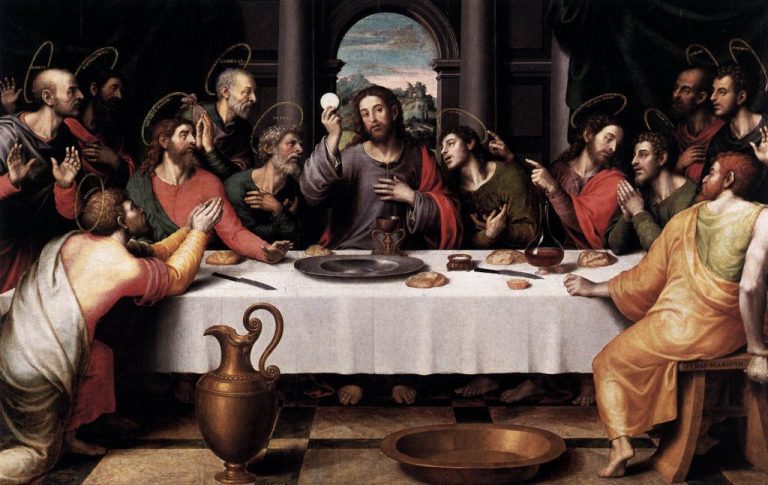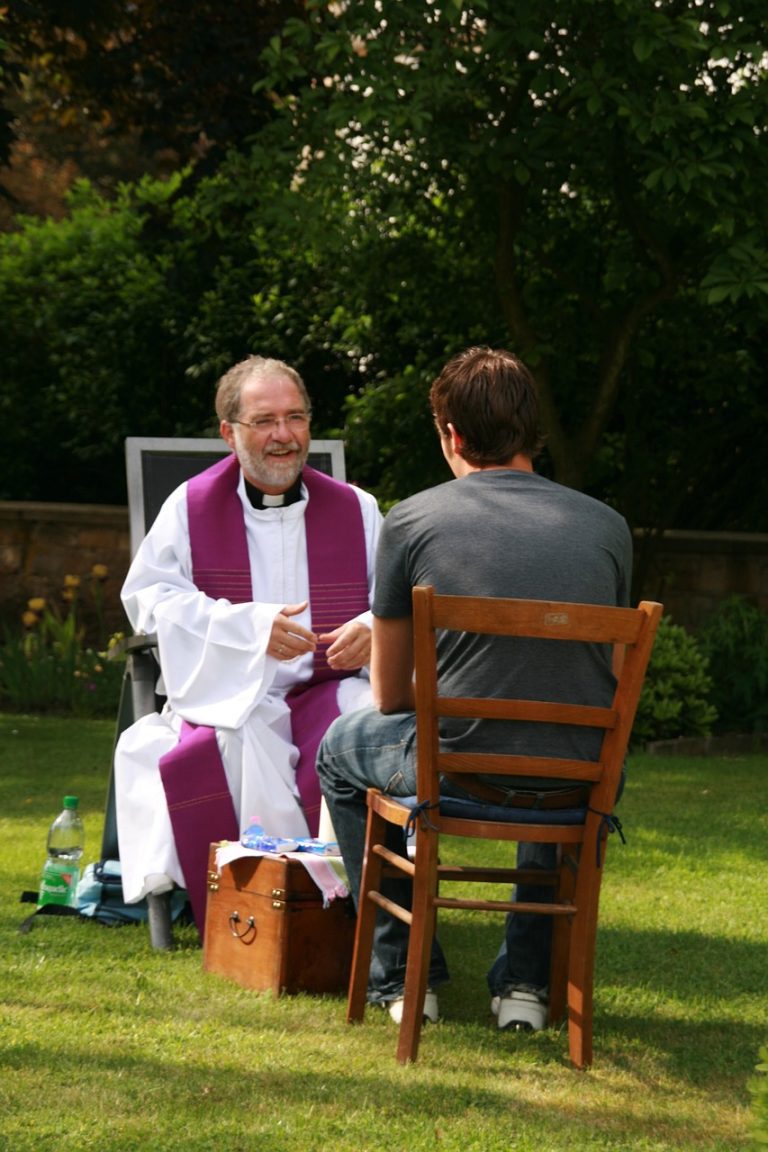Traditional Christians take Scripture as literally as possible. We tend to believe what modern Christians describe as “mythological stories” in the Bible. We take seriously the Genesis account of Creation and believe in God’s covenant with Abraham. We believe that the Red Sea parted, that the prophets predicted the coming of Christ, that He was conceived by the Holy Spirit, born of the Virgin Mary, suffered under Pontius Pilate, and was crucified. We go on to believe that He died, descended into Hell, rose again from the dead, and has ascended into Heaven, where He sits at the right hand of God, the Father Almighty, from whence He shall come to judge the living and the dead.
We are not comfortable in picking and choosing what we’re comfortable believing. We avoid saying, “I will believe this and not that.” That is a doorway through which one’s ego strides, swelling hugely after passing through that portal and entering into the land of towering vanities that flourish beyond the pale. We greatly fear that will happen to us if we begin to pick and choose what parts of Scripture we will take seriously.
Modern Christians have, as a core belief, the tenet that everyone should be nice. They believe that Jesus was nice, that God was nice, and that the only reason for which anyone could be sent to hell is for not being sufficiently nice. After reflection, many travel to the logical conclusion of such thoughts; and, having reached that unavoidable end, announce with some pride, “Actually, there is no such place as hell. Hell, and punishment in general, are concepts embraced by people who are excessively ‘judgmental’. Hell does not exist, and the people who threaten others with the punishment therein are simply not ‘nice’.”
Upon hearing those, or similar, words from a newly enlightened soul, those already lost will voice their approval and grant their approbation to the newer members of their group. Traditionalists, seeing the same thing, wince. We know the unavoidability of the coming pain whose living cause rejoices in the knowledge that it will be visited upon apostasy’s newest acolyte in a very short time.
When faced with problems in the world, for instance, as those posed by a very large religion whose members steal Christian’s property and kill them with increasing frequency, and do so because they believe it will get them into Heaven, the modern Christian is left with the knowledge that the only response should be to shrug one’s shoulders and get on with telling all who will listen how very important it is to be “nice”, while simultaneously insisting “I am a good person.”
Thus is the modern Christian paralyzed. He began by denying the miracles and ended by renouncing the the “judgment parts” of Scripture, so he has simultaneously and automatically reduced his own ability to pass judgment on, let alone take action against, those committed to destroying him, personally, and all his similarly believing friends and neighbors. The resultant paralysis keeps him from taking active steps to defend himself, ensuring his own destruction.
As the miles of burning cars in riot-torn Paris, the countless rapes and murders of Christians throughout the Middle East, and now Europe, indicate, the modern Christian’s thought pattern has led to paralysis, pretence, and self-destruction rather than progress. The world has been made a worse, and less safe, place under the hegemony of the modern Christian. Traditional Christians take heed of one passage, “The lukewarm water, I spit out of my mouth.” and, it must be admitted, are probably not as sorry about that coming to pass as the “nicer” and more modern Christians would be.
One way to combat the destructive, egoist tendency to believe in only the parts of Scripture we want to believe is to see the “mythological parts” of Scripture as the results of God’s ability to program particles and compile them into systems and beings. Catholic Fundamentalism makes belief in a recent creation, even as recently as ten or twelve thousand years, ago seem possible. Plausibility comes closer when we ask, “Why would God waste time if He is powerful enough to program particles and download them?” and suggest an answer like this: “It’s not unreasonable to conclude that He wrote the Creation Program. With His hierarchy of sub-programmers, He downloaded the various particle programs into operating systems and beings. He did so with what appears to us as ‘blinding speed’.”
We may ask, “How do we human fit into things?”
A Catholic Fundamentalist replies, “His most complicated programs were us human beings, which took an entire day for Him to download. Each one of us is, in essence, a replicating program with free will. In order to keep us from being forced to believe in Him by the evidence around us, which would destroy our free will, He downloaded the Creation Program, and our minds, in such a way that we could not prove He did either. We have to choose to believe, then, obey, in order to be saved. The more fully we believe in God, His Church, and His Scripture, the more of the world’s distractions we renounce, and the greater our chances (and degree?) of salvation.”
Catholic Fundamentalism’s approach helps Traditional Christians see that their faith has been correct, all along. Modern Christians may, by considering the same thing, see Catholic Fundamentalism as providing an escape from, and a replacement for, the rampant relativism that makes it impossible for them to grow closer to God.








